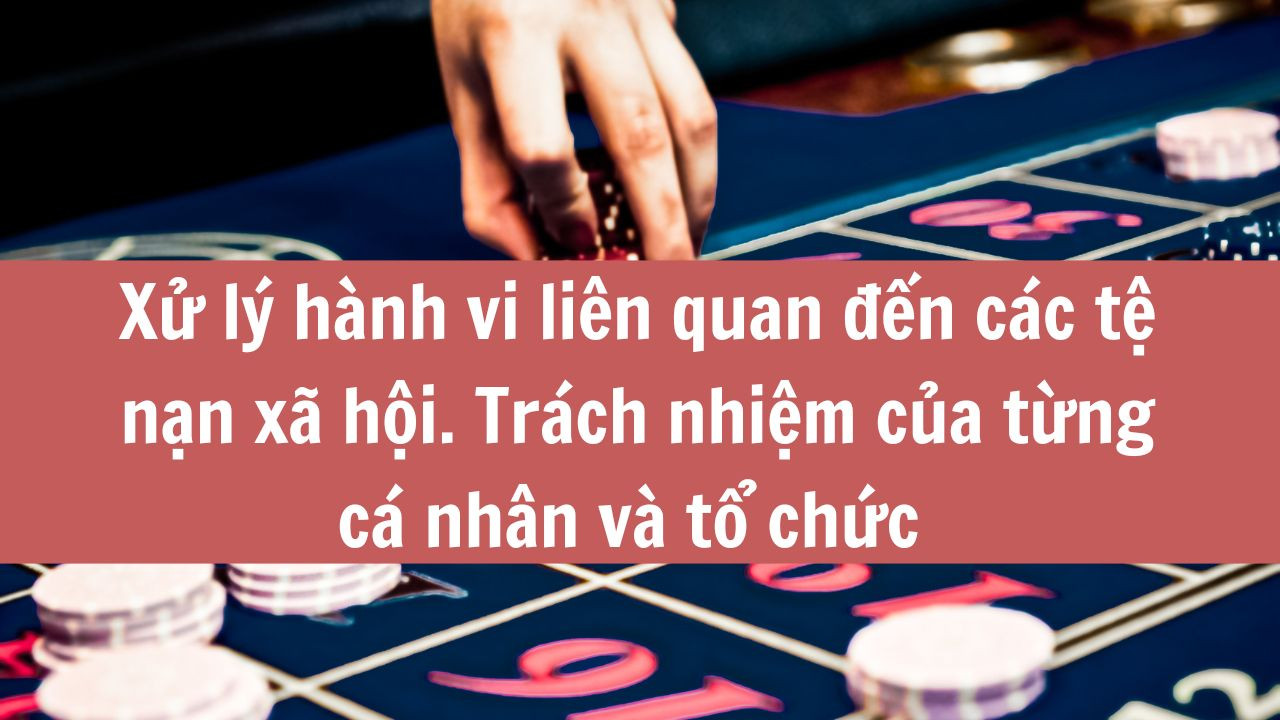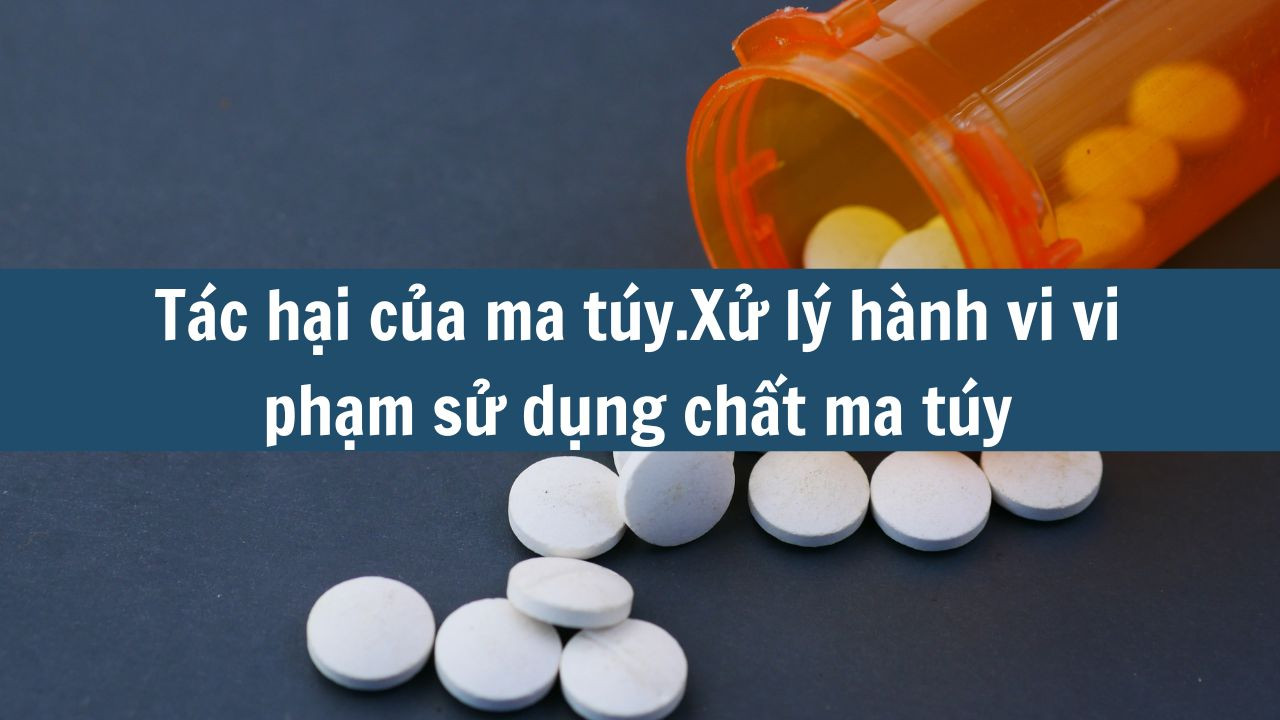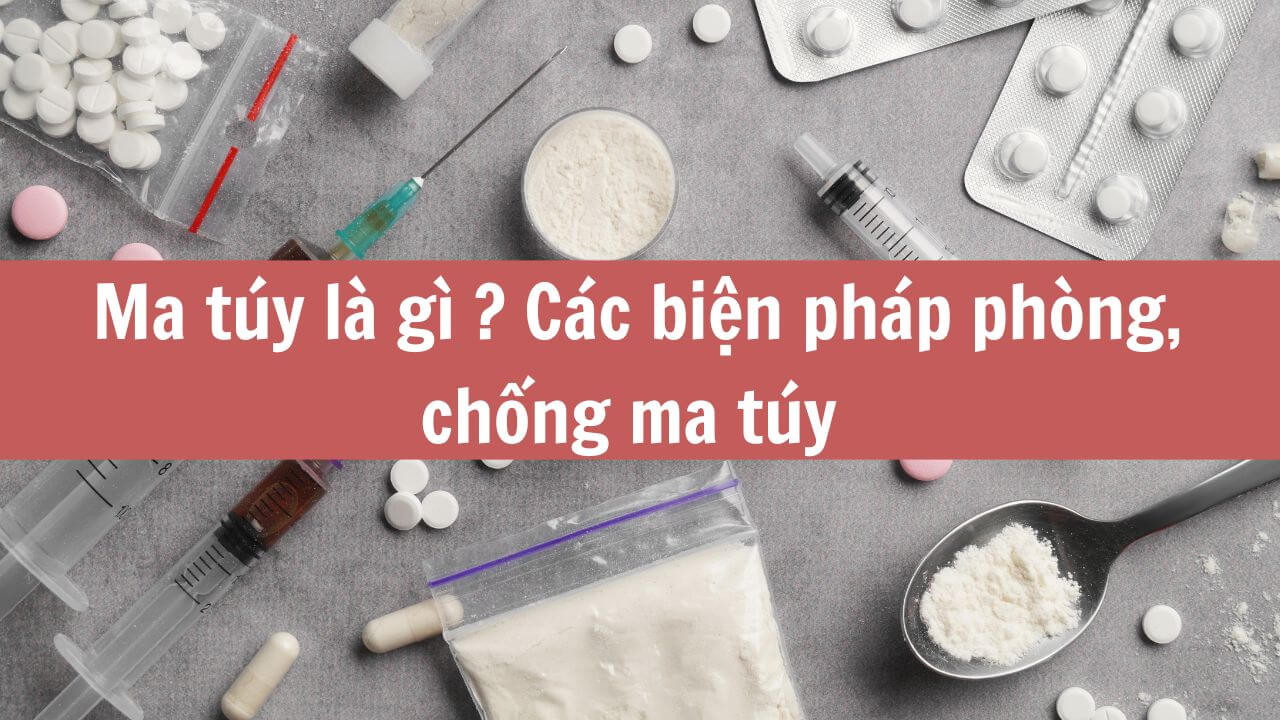 Tìm kiếm
Tìm kiếm
Chương I Luật Phòng, chống ma túy 2021: Những quy định chung
| Số hiệu: | 73/2021/QH14 | Loại văn bản: | Luật |
| Nơi ban hành: | Quốc hội | Người ký: | Nguyễn Thị Kim Ngân |
| Ngày ban hành: | 30/03/2021 | Ngày hiệu lực: | 01/01/2022 |
| Ngày công báo: | 30/04/2021 | Số công báo: | Từ số 567 đến số 568 |
| Lĩnh vực: | Trách nhiệm hình sự | Tình trạng: | Còn hiệu lực |
TÓM TẮT VĂN BẢN
Văn bản tiếng việt
Văn bản tiếng anh
Luật này quy định về phòng, chống ma túy; quản lý người sử dụng trái phép chất ma túy; cai nghiện ma túy; trách nhiệm của cá nhân, gia đình, cơ quan, tổ chức trong phòng, chống ma túy; quản lý nhà nước và hợp tác quốc tế về phòng, chống ma túy.
Trong Luật này, các từ ngữ dưới đây được hiểu như sau:
1. Chất ma túy là chất gây nghiện, chất hướng thần được quy định trong danh mục chất ma túy do Chính phủ ban hành.
2. Chất gây nghiện là chất kích thích hoặc ức chế thần kinh, dễ gây tình trạng nghiện đối với người sử dụng.
3. Chất hướng thần là chất kích thích hoặc ức chế thần kinh hoặc gây ảo giác, nếu sử dụng nhiều lần có thể dẫn tới tình trạng nghiện đối với người sử dụng.
4. Tiền chất là hóa chất không thể thiếu được trong quá trình điều chế, sản xuất chất ma túy được quy định trong danh mục tiền chất do Chính phủ ban hành.
5. Thuốc thú y có chứa chất ma túy, tiền chất là thuốc thú y có chứa các chất được quy định tại các khoản 2, 3 và 4 của Điều này.
6. Cây có chứa chất ma túy là cây thuốc phiện, cây côca, cây cần sa và các loại cây khác có chứa chất ma túy do Chính phủ quy định.
7. Phòng, chống ma túy là phòng ngừa, ngăn chặn, đấu tranh chống tội phạm và tệ nạn ma túy; kiểm soát các hoạt động hợp pháp liên quan đến ma túy.
8. Tệ nạn ma túy là việc sử dụng trái phép chất ma túy, nghiện ma túy và các hành vi vi phạm pháp luật về ma túy mà chưa đến mức hoặc không bị truy cứu trách nhiệm hình sự.
9. Kiểm soát các hoạt động hợp pháp liên quan đến ma túy là việc cho phép, theo dõi, kiểm tra, giám sát các hoạt động hợp pháp liên quan đến ma túy và phòng ngừa, ngăn chặn việc lợi dụng các hoạt động đó vào mục đích khác.
10. Người sử dụng trái phép chất ma túy là người có hành vi sử dụng chất ma túy mà không được sự cho phép của người hoặc cơ quan chuyên môn có thẩm quyền và xét nghiệm chất ma túy trong cơ thể có kết quả dương tính.
11. Xét nghiệm chất ma túy trong cơ thể là việc thực hiện các kỹ thuật chuyên môn nhằm xác định chất ma túy trong cơ thể thông qua mẫu nước tiểu, mẫu máu hoặc các mẫu vật khác của cơ thể người.
12. Người nghiện ma túy là người sử dụng chất ma túy, thuốc gây nghiện, thuốc hướng thần và bị lệ thuộc vào các chất này.
13. Cai nghiện ma túy là quá trình thực hiện các hoạt động hỗ trợ về y tế, tâm lý, xã hội, giúp người nghiện ma túy dừng sử dụng chất ma túy, thuốc gây nghiện, thuốc hướng thần, phục hồi thể chất, tinh thần, nâng cao nhận thức, thay đổi hành vi để chấm dứt việc sử dụng trái phép các chất này.
14. Cơ sở cai nghiện ma túy là cơ sở được thành lập để thực hiện đầy đủ quy trình cai nghiện theo quy định của Luật này, bao gồm cơ sở cai nghiện ma túy công lập và cơ sở cai nghiện ma túy tự nguyện.
1. Thực hiện đồng bộ các biện pháp phòng, chống ma túy; kết hợp với phòng, chống HIV/AIDS và các tệ nạn xã hội khác.
2. Tăng cường hoạt động tuyên truyền, giáo dục về công tác phòng, chống ma túy; khuyến khích tổ chức, cá nhân tham gia tuyên truyền, giáo dục phòng, chống ma túy.
3. Ưu tiên nguồn lực phòng, chống ma túy cho vùng đồng bào dân tộc thiểu số và miền núi, vùng sâu, vùng xa, hải đảo, khu vực biên giới và địa bàn phức tạp về ma túy.
4. Cán bộ, chiến sĩ thuộc cơ quan chuyên trách phòng, chống tội phạm về ma túy, người làm công tác cai nghiện ma túy trong các cơ sở cai nghiện ma túy công lập được hưởng chế độ, chính sách ưu đãi phù hợp với tính chất nhiệm vụ, địa bàn hoạt động theo quy định của Chính phủ.
5. Bảo vệ, hỗ trợ cá nhân, gia đình, cơ quan, tổ chức tham gia phòng, chống ma túy.
6. Quản lý chặt chẽ người sử dụng trái phép chất ma túy, người nghiện ma túy; khuyến khích người nghiện ma túy tự nguyện cai nghiện ma túy, điều trị nghiện các chất dạng thuốc phiện bằng thuốc thay thế; khuyến khích cá nhân, gia đình, cơ quan, tổ chức tham gia, hỗ trợ hoạt động cai nghiện ma túy, quản lý sau cai nghiện ma túy.
7. Bảo đảm kinh phí cai nghiện ma túy bắt buộc; hỗ trợ kinh phí cai nghiện ma túy tự nguyện, kinh phí quản lý sau cai nghiện ma túy.
8. Tổ chức, cá nhân trong nước và ngoài nước đầu tư vào hoạt động cai nghiện ma túy, hỗ trợ quản lý sau cai nghiện ma túy, phòng, chống tái nghiện ma túy được miễn, giảm tiền thuê đất, thuế thu nhập doanh nghiệp theo quy định của pháp luật.
9. Khuyến khích nghiên cứu khoa học, phát triển công nghệ và ứng dụng công nghệ cao trong phòng, chống ma túy.
10. Khen thưởng cá nhân, tổ chức, cơ quan có thành tích trong phòng, chống ma túy.
1. Ngân sách nhà nước.
2. Nguồn tài trợ, viện trợ, đầu tư, tặng cho của tổ chức, cá nhân trong nước và ngoài nước.
3. Chi trả của gia đình, người nghiện ma túy.
4. Các nguồn tài chính hợp pháp khác.
1. Trồng cây có chứa chất ma túy, hướng dẫn trồng cây có chứa chất ma túy.
2. Nghiên cứu, giám định, kiểm nghiệm, kiểm định, sản xuất, tàng trữ, vận chuyển, bảo quản, tồn trữ, mua bán, phân phối, xử lý, trao đổi, xuất khẩu, nhập khẩu, tạm nhập, tái xuất, tạm xuất, tái nhập, quá cảnh trái phép chất ma túy, tiền chất, thuốc gây nghiện, thuốc hướng thần, thuốc tiền chất, nguyên liệu làm thuốc là dược chất gây nghiện, dược chất hướng thần, tiền chất dùng làm thuốc, thuốc thú y có chứa chất ma túy, tiền chất.
3. Chiếm đoạt chất ma túy, tiền chất, thuốc gây nghiện, thuốc hướng thần, thuốc tiền chất, nguyên liệu làm thuốc là dược chất gây nghiện, dược chất hướng thần, tiền chất dùng làm thuốc, thuốc thú y có chứa chất ma túy, tiền chất.
4. Giao nhận, quản lý, kiểm soát, lưu giữ, cấp phát, bảo quản chất ma túy, tiền chất trái quy định của pháp luật; cho phép người sử dụng chất ma túy, thuốc gây nghiện hoặc thuốc hướng thần trái quy định của pháp luật.
5. Sử dụng, tổ chức sử dụng trái phép chất ma túy; cưỡng bức, lôi kéo người khác sử dụng trái phép chất ma túy; chứa chấp, hỗ trợ việc sử dụng trái phép chất ma túy.
6. Sản xuất, tàng trữ, vận chuyển, mua bán phương tiện, dụng cụ dùng vào việc sản xuất hoặc sử dụng trái phép chất ma túy.
7. Chống lại hoặc cản trở việc xét nghiệm chất ma túy trong cơ thể, xác định tình trạng nghiện ma túy, quản lý người sử dụng trái phép chất ma túy, cai nghiện ma túy, quản lý sau cai nghiện ma túy.
8. Trả thù hoặc cản trở người thực thi nhiệm vụ phòng, chống ma túy, người tham gia phòng, chống ma túy.
9. Lợi dụng chức vụ, quyền hạn, nghề nghiệp để vi phạm pháp luật về phòng, chống ma túy.
10. Hướng dẫn sản xuất, hướng dẫn sử dụng trái phép chất ma túy; quảng cáo, tiếp thị chất ma túy.
11. Kỳ thị người sử dụng trái phép chất ma túy, người cai nghiện ma túy, người sau cai nghiện ma túy.
12. Các hành vi bị nghiêm cấm khác do luật định liên quan đến ma túy.
This Law provides for prevention and control of narcotic substances; management of persons using narcotic substances illegally; responsibilities of individuals, families, regulatory bodies and organizations for prevention and control of narcotic substances; state management of and international cooperation in prevention and control of narcotic substances.
For the purposes of this Law, the terms below shall be construed as follows:
1. “narcotic substance” means an addictive substance or psychotropic substance included in the list of narcotic substances promulgated by the Government.
2. “addictive substance” means a stimulant or depressant to which the user is likely to become addicted.
3. “psychotropic substance” means a stimulant or depressant or hallucinogen to which the user may become addicted after multiple uses.
4. “precursor” means a chemical necessary for the production of a narcotic substance and included in the list of precursors promulgated by the Government.
5. “veterinary drug containing narcotic substance or precursor” means a veterinary drug that contains any of the substances mentioned in Clauses 2, 3 and 4 of this Article.
6. “plants containing narcotic substances” includes the poppy plant, coca plant, cannabis plant and other plants containing a narcotic substance stipulated by the Government.
7. “prevention and control of narcotic substance” means the prevention of and fight against crime and evils related to narcotic substances and control of legal activities related to narcotic substances.
8. “social evils related to narcotic substances" includes illegal use of narcotic substances, narcotic substance dependence and violations against regulations of law on narcotic substances that are not yet or not liable to criminal prosecution.
9. “control of legal activities related to narcotic substances” consists of authorization, monitoring, inspection and supervision of legal activities related to narcotic substances, and prevention of the misuse of these activities.
10. “person using a narcotic substance illegally” means an individual who uses a narcotic substance without the permission of the competent person or authority and whose body tests positive for the narcotic substance (hereinafter referred to as “drug user”).
11. “testing for narcotic substance in body” means the performance of specialized techniques to detect a narcotic substance in the human body via urine sample, blood sample or other samples from the body.
12. “person suffering from narcotic substance dependence” means a person who uses a narcotic substance, narcotic drug or psychotropic drug and becomes dependent on the substance or drug (hereinafter referred to as “drug addict”).
13. “narcotic substance rehabilitation” means a process where medical, psychological and social assistance is provided for a drug addict to help them stop using a narcotic substance, narcotic drug or psychotropic drug, make physical and mental recovery, have a better understanding and change their behaviors to cease using the substance illegally (hereinafter referred to as “rehabilitation”).
14. “narcotic substance rehabilitation centers” means facilities established to carry out the rehabilitation process provided for by this Law, including public narcotic substance rehabilitation centers and voluntary narcotic substance rehabilitation centers (hereinafter referred to as “rehabilitation centers”).
Article 3. State policies on prevention and control of narcotic substances
1. Take measures against narcotic substances together with measures against HIV/AIDS and other social evils in a consistent manner.
2. Raise the awareness of narcotic substance prevention and control; encourage organizations and individuals to participate in this task.
3. Prioritize resources for narcotic substance prevention and control for ethnic minority areas, mountainous areas, remote and isolated areas, islands, border areas and areas plagued with issues related to narcotic substances.
4. Officials and soldiers of authorities of prevention and control of crime related to narcotic substances (hereinafter referred to as “drug-related crime preventing authorities”) and persons in charge of drug rehabilitation in public rehabilitation centers are entitled to benefits appropriate to their duties and work locations according to the Government’s regulations.
5. Protect and support individuals, families, regulatory bodies and organizations involved in narcotic substance prevention and control.
6. Properly manage drug users and drug addicts; encourage drug addicts to undergo rehabilitation and/or receive opioid substitution therapy; encourage individuals, families, regulatory bodies and organizations to participate in and support rehabilitation and post-rehabilitation management.
7. Ensure funding for compulsory rehabilitation; provide financial assistance for voluntary rehabilitation and post-rehabilitation management.
8. Vietnamese and foreign organizations and individuals investing in rehabilitation, post-rehabilitation management and prevention of narcotic substance relapse are entitled to land rents and/or corporate income tax exemption or reduction as prescribed by law.
9. Scientific research, technology development and application of high technology in prevention and control of narcotic substances are encouraged.
10. Individuals, organizations and regulatory bodies having achievements in prevention and control of narcotic substances shall be commended.
Article 4. Funding for prevention and control of narcotic substances
Prevention and control of narcotic substances shall be funded by:
1. State budget.
2. Sponsorship, aid, investments and gifts from Vietnamese and foreign organizations and individuals.
3. Payment from drug addicts and families thereof.
4. Other legal funding sources.
1. Growing of plants containing narcotic substances; provision of instructions for growing of plants containing narcotic substances.
2. Illegal research, examination, testing, inspection, production, storage, transport, preservation, trade, distribution, processing, exchange, export, import, temporary import, re-export, temporary export, re-import and transit of narcotic substances, precursors, narcotic drugs, psychotropic drugs, precursor drugs, and medicinal ingredients being narcotic active ingredients, psychotropic active ingredients or precursors used for production of medicines or veterinary drugs containing narcotic substances or precursors.
3. Appropriation of narcotic substances, precursors, narcotic drugs, psychotropic drugs, precursor drugs and medicinal ingredients being narcotic active ingredients, psychotropic active ingredients or precursors used for production of medicines or veterinary drugs containing narcotic substances or precursors.
4. Illegal delivery, receipt, management, control, storage, dispensing and preservation of narcotic substances and precursors; allowing illegal use of narcotic substances, narcotic drugs or psychotropic drugs.
5. Illegal use or organization of illegal use of narcotic substances; forcing or persuading others to use narcotic substances illegally; aiding and abetting illegal use of narcotic substances.
6. Illegal production, storage, transport and trade of equipment used for illegal production or use of narcotic substances.
7. Resisting or obstructing testing for narcotic substance in body, diagnosis of narcotic substance dependence, drug user management, rehabilitation or post-rehabilitation management.
8. Taking revenge on or obstructing persons performing duties of narcotic substance prevention and control and participants in narcotic substance prevention and control.
9. Abusing positions, powers or jobs to commit violations against regulations of law on narcotic substance prevention and control.
10. Provision of instructions for illegal production or use of narcotic substances; advertising narcotic substances.
11. Discrimination against drug users, persons undergoing rehabilitation and persons having completed rehabilitation.
12. Other prohibited acts involving narcotic substances provided for by regulations of law.
Cập nhật
Bài viết liên quan
Xử lý hành vi liên quan đến các tệ nạn xã hội. Trách nhiệm của từng cá nhân và tổ chức

Xử lý hành vi liên quan đến các tệ nạn xã hội. Trách nhiệm của từng cá nhân và tổ chức
Phòng tránh tệ nạn xã hội không chỉ là việc của một cá nhân, tổ chức mà cần phải có sự phối hợp chung tay của cả cộng đồng. Việc phòng tránh tệ nạn xã hội là trách nhiệm của toàn hệ thống chính trị kết hợp với người dân. 06/11/2024Tác hại của ma túy. Xử lý hành vi vi phạm sử dụng chất ma túy

Tác hại của ma túy. Xử lý hành vi vi phạm sử dụng chất ma túy
Ma túy là một hiểm họa lớn nhưng chúng ta hoàn toàn có thể chiến thắng. Hãy cùng nhau chung tay đẩy lùi tệ nạn này để xây dựng một xã hội lành mạnh và văn minh. Sử dụng ma túy là một hành vi nguy hiểm, gây ra nhiều hậu quả nghiêm trọng cho bản thân, gia đình và xã hội. Ma túy không chỉ gây hại cho sức khỏe mà còn làm suy yếu ý chí, phá hủy cuộc sống của người sử dụng. 05/11/2024Ma túy là gì? Các biện pháp phòng, chống ma túy


 Luật Phòng, chống ma túy 2021 (Bản Pdf)
Luật Phòng, chống ma túy 2021 (Bản Pdf)
 Luật Phòng, chống ma túy 2021 (Bản Word)
Luật Phòng, chống ma túy 2021 (Bản Word)